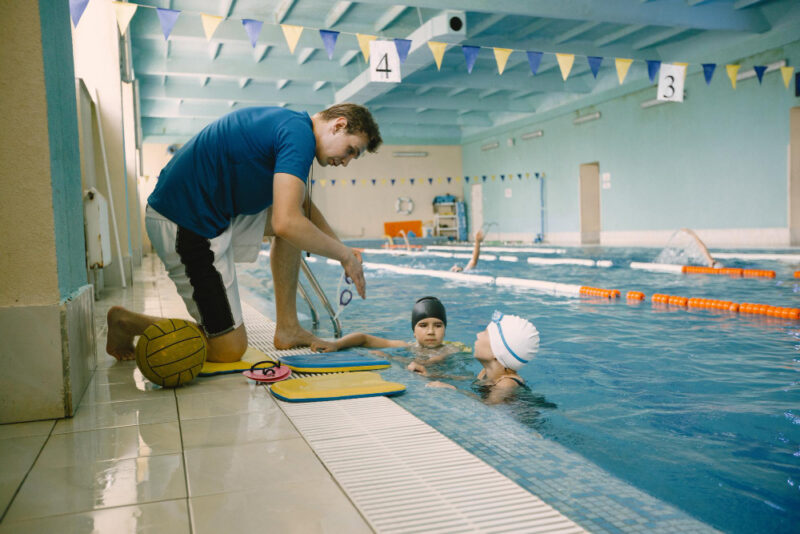Competitive swimming is a sport that requires discipline, dedication, and hard work. To excel in this sport, it is essential to receive proper coaching and guidance. Competitive swimming coaching is an extensive and complex process that involves a wide range of skills and knowledge. A coach is a vital figure in the life of any competitive swimmer. They provide support, motivation, and guidance to help swimmers achieve their full potential.
Competitive swimming coaching is a highly specialized field that requires extensive knowledge, experience, and dedication to the sport. A competitive swimming coach is responsible for developing and implementing training programs that help athletes achieve their full potential in the pool. This involves analyzing each swimmer’s strengths and weaknesses, setting realistic goals, and providing ongoing feedback and support to help them improve their technique, speed, and endurance.
A successful competitive swimming coach must possess excellent communication, leadership, and motivational skills, as well as a deep understanding of the physiological and psychological aspects of training and competition. With the right guidance and direction, competitive swimmers can achieve remarkable results and reach the pinnacle of their sport.
Techniques For Mental Preparation in Competitive Swimming
When it comes to competitive swimming, having the right mindset is crucial. Swimmers must be able to push their physical and mental limits in order to achieve success. To do this requires a certain level of preparation that can help swimmers remain focused and motivated during competition. Here are some techniques for getting mentally ready for competitive swimming.
Visualization plays an important role in helping swimmers prepare mentally for a race or meet. Visualizing yourself completing each stroke with perfect form, executing turns perfectly and crossing the finish line first can give you the confidence boost needed to succeed on race day. Additionally, positive self-talk is key in preparing your mind for competition; telling yourself, “I can do this” or “I am strong enough” will help boost your focus and determination when you’re feeling anxious or overwhelmed during a swim meet.
Setting goals before each event helps keep swimmers motivated throughout the season as they strive towards achieving those targets both inside and outside of the pool. However, it is also important to remember that failure isn’t always indicative of a lack of effort; by learning from mistakes made instead of becoming discouraged by them, swimmers can gain valuable insight into how best to improve their performance going forward.
Technical Foundations of a Successful Swim Stroke
Swimming is a sport that requires both technical and mental preparation to achieve success. Developing the right mindset is essential for competitive swimmers, but having the correct technique in place is also paramount. Technical foundations of a successful swim stroke are key for any swimmer who wants to maximize their performance and reach their goals.
This includes understanding the basics of body position, breathing techniques, kick timing, arm recovery and entry points, as well as other related aspects of each particular stroke. With practice, swimmers can begin to refine these skills until they become second nature in each race or training session.
Achieving balance in all four swimming strokes—freestyle, backstroke, breaststroke, and butterfly—by becoming aware of which muscles require more focus than others during various movements, is another crucial aspect of good swimming technique. You can develop a generally balanced approach that will help you maintain form over longer distances with less energy expenditure by concentrating on honing your individual strengths while also working on weaker areas.
It’s clear then that there are many components involved when it comes to perfecting one’s swimming technique; however, mastering them will undoubtedly lead to greater speed and improved times in races and competitions alike.









